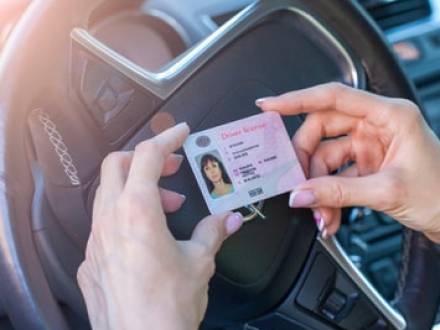What If Your Driver’s License Reinstatement Is Denied?
 A DUI conviction or too many points on your driving record can cause you to lose your license. Since most of us rely on our vehicles to commute to and from work, take the kids to school, run errands, and participate in recreational activities, being without a vehicle can be a challenging situation. If you have been dealing with a suspended license for the past year, two years, or even longer, it can be exciting when the time approaches for license reinstatement.
A DUI conviction or too many points on your driving record can cause you to lose your license. Since most of us rely on our vehicles to commute to and from work, take the kids to school, run errands, and participate in recreational activities, being without a vehicle can be a challenging situation. If you have been dealing with a suspended license for the past year, two years, or even longer, it can be exciting when the time approaches for license reinstatement.
Typically, the process goes smoothly, but occasionally, challenges arise. There are many issues that can stall out a driver’s license reinstatement. It can be helpful to go over the list of the most common reasons for license reinstatement denial so you can address any potential problems and increase your likelihood of a successful outcome. It can also be helpful to speak to an experienced Kane County, IL license reinstatement attorney.
What Are Some of the Most Common Reasons a License Reinstatement Application Might Be Denied?
While every situation is different, there are some reasons that are more common than others for having a driver’s license reinstatement denied. These include:
DUI-Related Issues Are Not Fully Resolved
If your driver’s license was revoked because of a DUI conviction, you likely had a list of conditions to fulfill before having your license reinstated. These conditions may include installing an ignition interlock device on your vehicle for a specified period, completing drug and alcohol education classes, participating in treatment programs, and paying all the fines associated with the DUI.
Required Hearings Were Not Attended
DUI-related license reinstatements require either a formal or informal hearing in the state. If you miss one of these hearings or you attend the hearing but are not properly prepared, you could find your request for a license reinstatement denied. The hearing officer could deny your request for a license reinstatement if he or she feels your sworn testimony is not entirely truthful or there is missing evidence.
You Are Applying Too Soon After a Prior Reinstatement Denial
If you reapply too soon without making sure that all the issues responsible for the prior denial have been resolved, you are likely to receive another denial. Carefully review the reasons your prior reinstatement application was denied, and ensure that each item has been fully resolved.
The Documentation You Submitted is Incomplete or Incorrect
The license reinstatement program requires an array of documents. Submitting incorrect or outdated forms or failing to provide all the required documentation can potentially lead to your application being denied. Reinstatement applications may require an SR-22 form (proof of auto insurance), certificates of completion from mandated programs, and financial responsibility forms.
You Are Deemed a Risk to Public Safety
Your license reinstatement application could be denied if the Secretary of State determines you remain a risk to public safety, whether due to the severity of your DUI conviction or a history of reckless driving. The state will consider alcohol and drug evaluations, treatment documentation completed by a state-licensed program, character reference letters, and even support group letters, along with your own testimony of how you have changed your life.
You Have Additional Violations or New Offenses
If you have received traffic violations while your license was suspended, it may be determined that your pattern of behavior affects your eligibility for reinstatement. In some cases, traffic violations from many years ago, even those from another state, may not indicate that they have been resolved, even when they have, and you will need to provide proof.
Contact a DuPage County, IL License Reinstatement Lawyer
The license reinstatement process virtually always goes more smoothly when you have a knowledgeable Naperville, IL license reinstatement lawyer from Law Office of Patricia Magaña, LLC as your legal advocate. Attorney Magana has extensive experience representing individuals in formal and informal hearings before the Secretary of State’s office. To schedule your free consultation, call 630-448-2001. Se Habla Español.

 630-448-2001
630-448-2001






